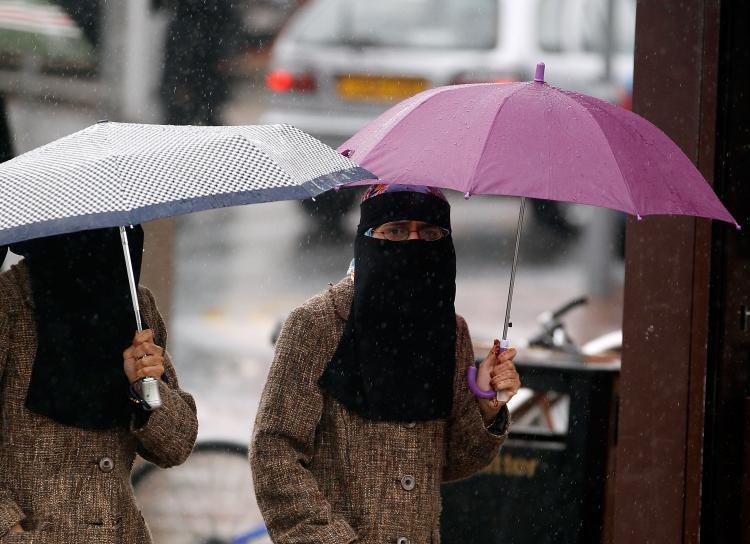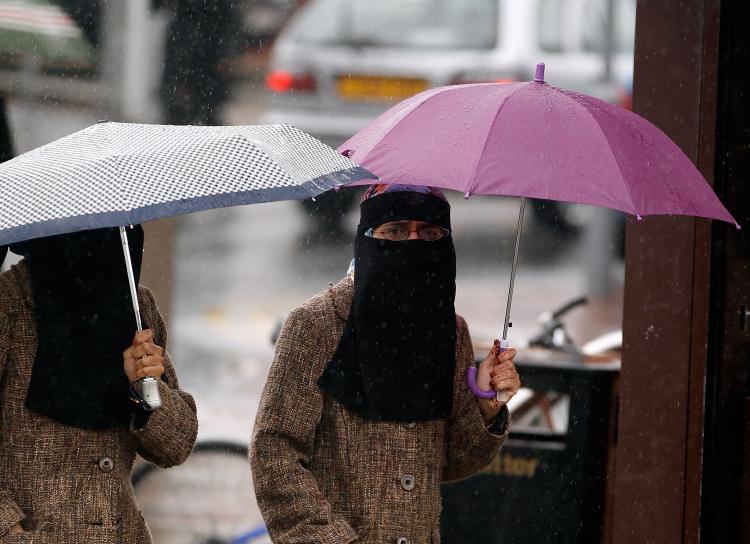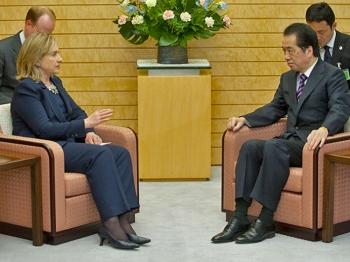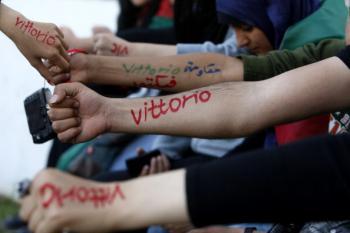Two Women Arrested in France During Burqa, Niqab Ban Protest
As France’s controversial law banning full Muslim veils came into effect on Monday, two female protesters defying the law were arrested in Paris.
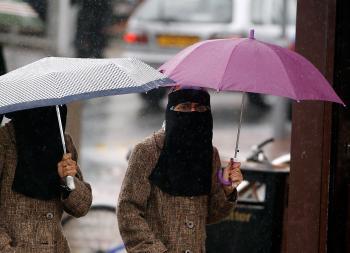
Women, sheltering under umbrellas, wear full face Niqab on the streets of Blackburn July 20, 2010 in Blackburn, England. Christopher Furlong/Getty Images
|Updated:
